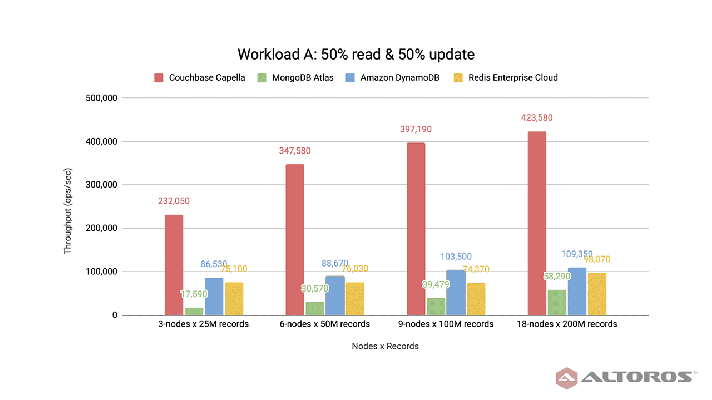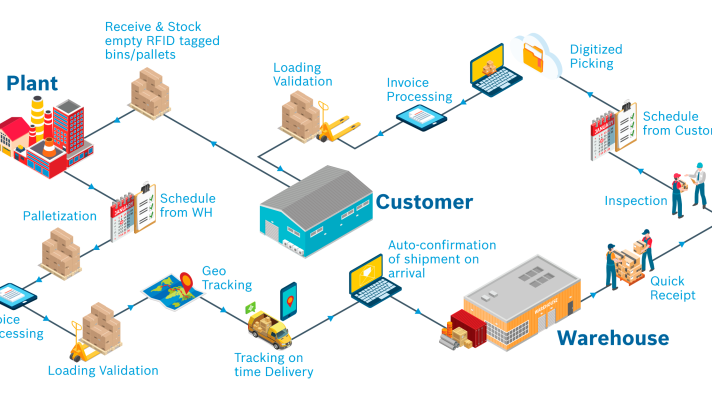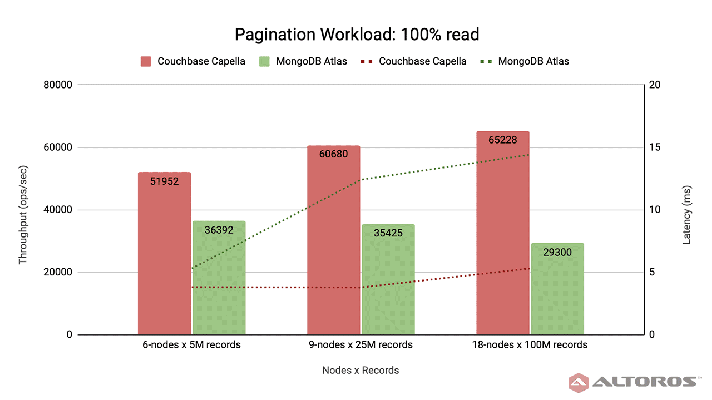A Sneak Peak at the Development Kitchen of Altoros, Q2 2008

An interview with our CEO
On May 15, 2008, Renat Khasanshyn, CEO at Altoros, attended Web 2.0 Expo—an annual gathering of technical, design, marketing, and business professionals. During the event, which was held in New York, Renat gave an interview to TechZulu, an independent media covering the technology industry.
Watch the video to learn about how the development center of Altoros works and what the company is currently up to.
Technology expertise
During Q2, 2008, Altoros completed a number of projects and created new technology-specific teams.
.NET Framework
Our .NET team released a demo version of a building rent management system that enables users to manage, support, sort, group, and report on building rent within a huge business park. Based on MS SQL Server 2005, .NET Framework 3.5 (WPF, WCF, Linq, C# 3.0), MS ISS, and MSDTC, the system enables you to create new managers/users, assign tasks and responsibilities, maintain the existing and add new information on tasks, invoicing, accounting, etc.
Altoros finalized an educational resource based on ASP.NET, Active Script, and Flash. It is designed to teach kids to spend money in a rational way from early childhood. The concept is easy: parents are employers, kids are employees. It is a virtual city with everything a regular megapolis has: a bank, stores, a media center, a mall, etc. There is also a list of tasks for kids. Upon completing them, they get their salary and can spend it on whatever they would like. This way, the portal makes it possible for kids to turn daily projects and routine household jobs into their own businesses and learn the value of earning.
Altoros has also achieved the Microsoft Certified Partner status. By gaining the required number of points to get this designation, Altoros confirmed its competence in .NET.
Flex
A dedicated team of Adobe Flex developers has been created within Altoros. The team is currently working on the Apatar On-Demand data integration tool, a web application for business users that will synchronize data between various on-demand and on-premises systems.
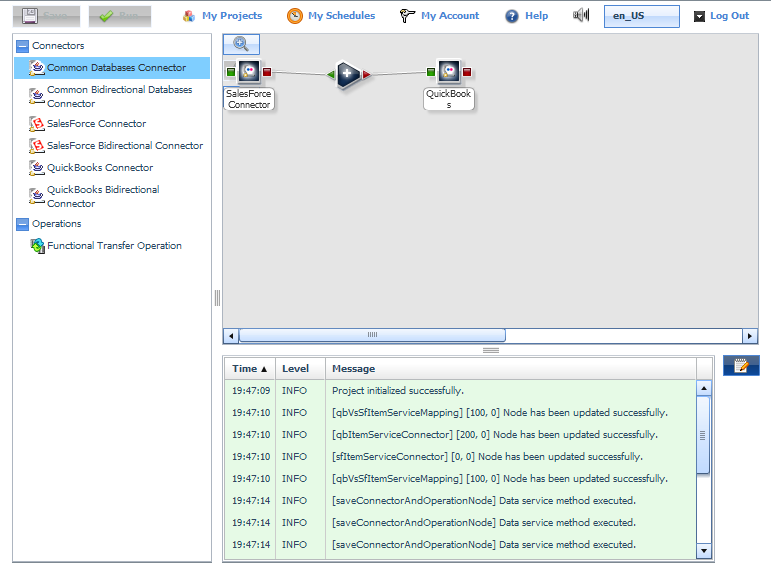 Prebuilt mapping within Apatar On-Demand
Prebuilt mapping within Apatar On-Demand
Ruby on Rails
Altoros moved to the next stage of developing the largest Ruby on Rails project in the world, a “life organizer” system. The main functions will range from personal tools (like calendars, journals, notes, ToDo lists) to social networking (with its typical structure of friends, contacts, online communication services, and other types of information exchange) and groupware services for joint project management, group communication, working with bugs, tickets, etc. The users will also be able to integrate external web applications, create services of their own, and customize the appearance of pretty much everything (up to changing the location of elements in input forms). On top of that, there are 200 services, including entertainment plans, weather forecasts, exchange rates, stocks and shares, and everything else you can possibly think of, to be added in the process of development.
Windows Mobile
Altoros has finished developing another module for a mobile-based logistic application that will run on any device with Windows Mobile 5.0 or higher. The application is designed for field technicians, enabling them to see their work orders and items needed to complete a task, handle their balance on several stocks, or register time and mileage for the work orders on their PDA. At the same time, managers in the office will be able to control work orders and see where each technician is at the moment.
A research paper on developer productivity
Altoros invites you to read our latest research paper covering Employee Productivity and Efficiency Assessment. The new document is a detailed guide to measuring your team’s work efficiency, obtaining and analyzing measurement results, as well as developing and assessing performance management systems within your business.
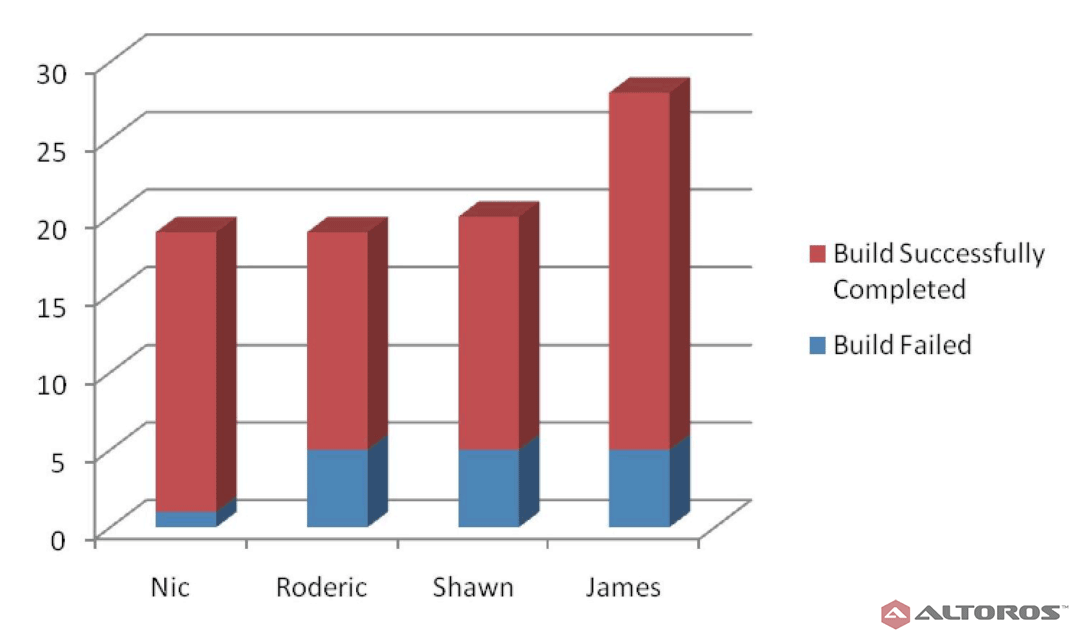 The number of completed builds vs. failed builds
The number of completed builds vs. failed builds
The challenge of the day: handling 5,000,000 entries
In this section, we would like to share with you some problems our team encountered and the creative solutions we came up with.
After the data on the VoipReview.org project surpassed 5,000,000 entries, it took over 5 minutes to update all this information, and searching took around 7 seconds. Our team analyzed the website’s workload and figured out that 95% of the time users were interested in only 15 popular providers. So, we distributed data between the website’s cache and databases, storing information on these top 15 providers into the cache and the rest of the data into the databases. Now, it takes only 4 seconds to update the availability and 3 seconds to perform the search.
Want more? Subscribe to updates!
Further reading
- Introducing Our R&D Team and Innovative Technology BarCamps
- Meet Our Team: What Does It Take to Become a Great Developer?
- Altoros Was Invited to Israeli Government Organizations
with assistance from our development teams.




